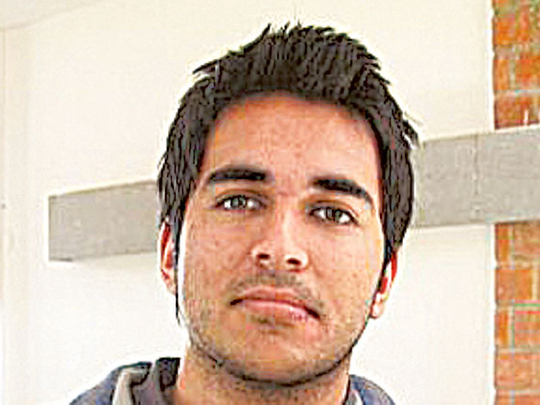
New Delhi: A criminal offence in India, hazing of late has turned barbaric with senior students, rather hoodlums, letting off their frustrations on juniors, sometimes going to the extent of homicide to fulfil their monstrous craze which they call “harmless ragging”.
Those who indulge in hazing probably do not realise the extent of how it affects those at its receiving end. Either that, or they only want others to go through what they were made to experience at one time.
Rajendar Kachroo, who started the ‘Aman Movement’ for eradication of hazing from India after his son Aman’s death, is a case in point.
Kachroo, who moved the Supreme Court soon after Aman’s death for framing laws to eradicate hazing, is also monitoring the National Ragging Prevention Programme on behalf of the University Grants Commission (UGC).
Nineteen-year-old Aman, a first-year MBBS student of Rajendra Prasad Medical College and Hospital in Tanda, Himachal Pradesh, died on March 8, 2009, after being allegedly ragged by final-year students — Ajay Verma, Naveen Verma, Abhinav Verma and Mukul Sharma. Hailing from the hill state, all four were held guilty on November 11, 2010, for Aman’s death.
The four were sentenced to four years in jail by a sessions court.
Additional district and sessions judge Purinder Vaidya held them guilty under Sections 304 (culpable homicide not amounting to murder),
452 (house-trespass after preparation for hurt, assault or wrongful restraint) and 34 (common intention) of Indian Penal Code (IPC).
National outrage
The incident had evoked national outrage against the menace of ragging. Aman, who did his schooling from DPS International School in South Delhi, had made repeated complaints to his parents regarding ragging, committed mostly by his seniors in an inebriated state.
“Just before his death, Aman told me that he gave in writing a complaint to college authorities regarding the hazing incident with him. However, few hours later, I received a phone call from the college informing me that he had passed away. Due to severe beatings at the hands of senior students, Aman had sustained grievous injuries on his chest, ears and face. Aman used to tell us many times about ragging incidents on the campus but we never took it so seriously.
“Some first-year students had complained to the college administration just before his death, but despite that, no steps were taken to stop ragging,” Rajendar Kachroo told Gulf News.
Kachroo feels that though he lost his son, many others can still be saved if timely action is taken. He feels hazing can be prevented if definite lines are drawn by society and punishment made so severe that students dare not commit such barbaric acts.
After Aman’s death was reported, the administrators at the Medical College had initially tried to pass it off as suicide. Only after the matter blew up did the principal decide to rusticate the four.
According to Aman’s aunt Indira Dhar, “Aman used to tell us that senior students would rag juniors after getting drunk and the same thing happened on the fateful Saturday night when they physically assaulted Aman. We came to know that senior students had slapped and punched Aman, inflicting internal injuries that proved fatal.”
Future caretakers
Rajendar Kachroo, who originally hails from Jammu and Kashmir but is now settled in the national capital region of Delhi, has urged the central government to come down heavily on this practice of hazing.
Many in Delhi feel that the quantum of punishment in Aman Kachroo case must have taken cognizance of the fact that those were medical students and future caretakers of patients seeking their expertise and care for recovery. That people wanting to enter this profession could behave in such a barbaric manner should be completely unacceptable.
“The entire country felt that the sentence of four years to the accused was mild. People urged me to appeal against the sentence but I did not do so as I had promised myself that I would not protest the judgment. The purpose of the trial was not merely to punish the accused for the sake of punishment but to convey a message that would help preventing further incidences of ragging. For me, conveying the message was much more important than anything else,” Kachroo said.
While the Himachal Pradesh state government recently allowed the four students convicted and sentenced in the Aman hazing death case, to complete their MBBS degrees, their fate would be decided at an executive committee meeting of the Himachal Pradesh University this month.
Kachroo would like to believe that this is done out of ignorance as he sees no other justification for remitting the sentence.
“The government of Himachal Pradesh is conveying a completely contradictory message. On the one hand, they have appealed to the High Court to enhance the sentence and on the other, reduced the sentence themselves. I do not know, is it a case of one arm of the government not knowing what the other arm is doing or there is more to it? The state government is probably not aware that 35 students have allegedly committed suicide across the country as a result of hazing since Aman died and two of these suicides happened in the last one month,” Kachroo lamented.
“The state government has tainted the four boys forever. They had only a few more months to complete their regular sentence. By staying behind bars, they would have elevated themselves morally and made a contribution to the cause of eradication of ragging,” he added.












